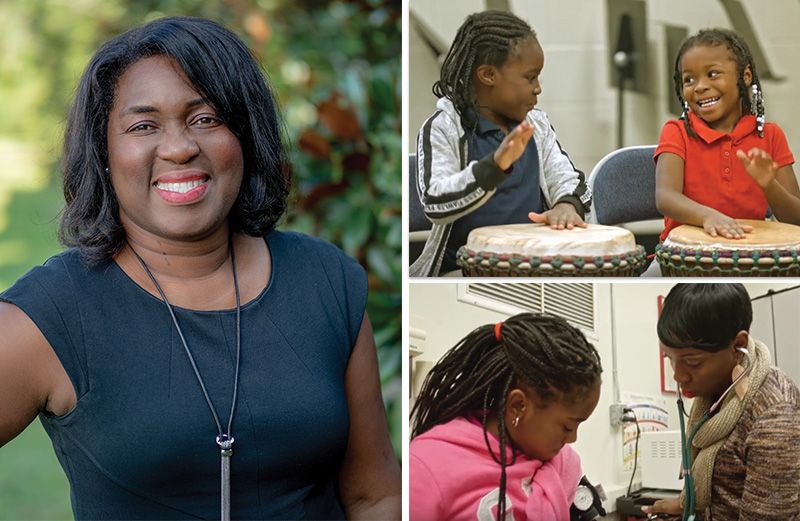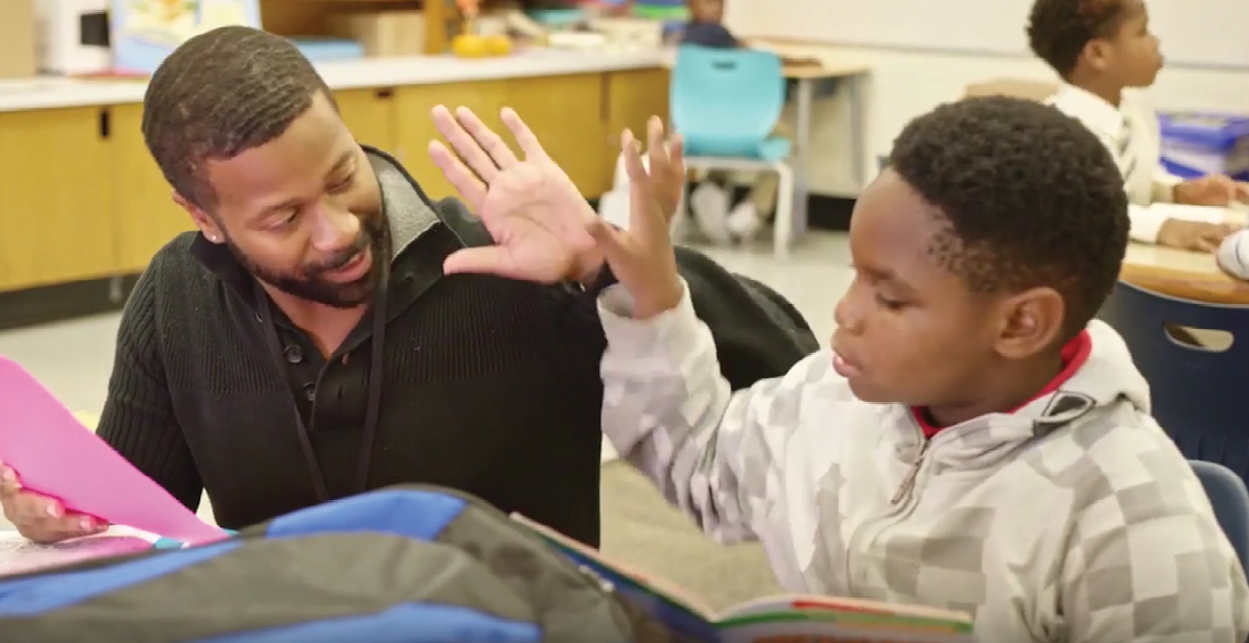The nonprofit aims to create a tight-knit safety net to help students graduate

(Left) Sherrie Snipes-Williams has led the nonprofit for eight years. (Bottom right) CPN brings a pediatrician to the schools’ health clinic.
“PTA meetings on steroids.” That’s how CEO Sherrie Snipes-Williams describes the STEM nights that Charleston Promise Neighborhood (CPN) frequently hosts to draw students and their families into its partnership with schools. One evening last fall, some 300 kids, parents, grandparents, and educators teamed up to determine the types of pollutants found in the neighborhood. “The purpose of these events is to bolster community and family engagement in local schools,” says Snipes-Williams.
Back in 2009, Nancy McGinley, superintendent of Charleston County School District (CCSD) at the time, and Charleston’s then-mayor Joe Riley spearheaded an effort to replicate the Harlem Children’s Zone’s famed model for ending generational poverty. The following year, the cities of Charleston and North Charleston, the county, and the school district joined for the first time to support the under-resourced neighborhood between the peninsula and North Charleston. Together, the four agencies set out to weave a safety net so tight knit that no child would slip through.
Through educational interventions, school-based health clinics, and community engagement, Charleston Promise Neighborhood aims to help every child attending four elementary schools within this 5.6-square-mile area called "The Neck" graduate from high school with the abilities necessary to succeed in college, the workforce, or the military. “We spend 75 percent of our time and resources on education,” explains Snipes-Williams, who has led this organization for eight of her 25 years in nonprofit management. Its initiatives, including afterschool and summer programs, reach roughly 1,700 students at Sanders-Clyde, Mary Ford, Chicora, and James Simmons elementary schools. The group provides discretionary funds that go toward teacher participation in national conferences, additional reading consultants, and parent navigators to connect families with needed interventions.

The organization has been supporitng schools and fostering community engagement since 2010.
In partnership with MUSC, CPN also established the school-based health clinic KidsWell, which brings telehealth and a pediatrician to the four schools to treat minor illnesses.
The final arm of the CPN network is a community engagement council composed of residents, parents, and nonprofit partners. Whether hosting STEM-centered family nights, presenting a conversation series on gentrification, or launching an engagement program for students, the council’s goal is to forward CPN’s work into the community as well as hear citizens’ ideas and concerns. The council “helps us to be intentional in our work,” says the CEO.
“We spend 75 percent of our time and resources on education.” —Sherrie Snipes-Williams
The COVID-19 outbreak required CPN to shift how it brings families and schools together. This spring, the group hosted an online behind-the-scenes look at the South Carolina Aquarium as well as a Zoom dance party at the end of a virtual family engagement night. Since schools closed in March, the KidsWell clinic has continued to treat students through telehealth services, with a focus on mental wellness, and the in-school parent navigators have kept CPN abreast of families’ basic needs. “We pushed resources back into the community wherever possible,” says Snipes-Williams, who also serves on CCSD’s reactivation task force shaping the physical reopening of schools. “We’ve funded face masks, helped families complete census forms, distributed grocery gift cards, and partnered with housing assistance networks,” she notes. As the Lowcountry enters an unprecedented new school year, the group plans to present back-to-school nights, expanded learning, and after-school programs virtually until children can safely return in-person.
CPN’s ability to rapidly adapt and respond to the changing needs of the community is one of the reasons the organization has held strong the past decade. “Our number one achievement is the growing trust of the community, gained through our longevity and effectiveness in the neighborhood and our schools,” Snipes-Williams says.